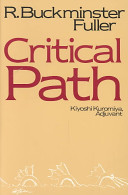The Origin of Interest
The international trading became the most profitable of all enterprises, and great land-"owners" with clear-cut king's "deeds" to their land went often to international gold moneylenders. The great land barons underwrote the building of enterprisers' ships with their cattle or other real wealth, the regenerative products of their lands, turned over to the lender as cccollateral.
If the ship did come back, both the enterpriser and the bankers realized a great gain. The successful ship venturer paid the banker back, and the banker who had been holding the cattle as collateral returned them to their original proprietor. But during the voyage (usually two years to the Orient and back to Europe) the pledged cattle had calves, "kind" (German for "child"), and this is where the concept of interest originated, which was payable "in kind"—the cattle that were born while the collateral was held by the banker were to belong to the banker.
When the Phoenicians shifted their trading strategy from carrying cattle to carrying metal money, the metal money didn't have little money "kind"—but the idea of earned interest persisted. This meant that the interest was deducted from the original money value, and this of course depreciated the capital equity of the borrower. Thus, metallic equity banking became a different kind of game from the original concept.
Notes:
From when bankers would hold cattle as collateral, and the cattle had calves. The calves were the interest.
Folksonomies: history economics banking
Taxonomies:
/finance/bank (0.462295)
/society/crime/property crime/usury (0.374918)
/business and industrial (0.272173)
Keywords:
international gold moneylenders (0.915490 (neutral:0.000000)), great land barons (0.914913 (positive:0.270909)), successful ship venturer (0.895304 (neutral:0.000000)), metallic equity banking (0.873458 (neutral:0.000000)), original money value (0.819966 (neutral:0.000000)), metal money (0.780734 (negative:-0.224625)), cattle (0.729841 (negative:-0.122423)), clear-cut king (0.688594 (neutral:0.000000)), different kind (0.679043 (neutral:0.000000)), banker (0.662930 (neutral:0.000000)), regenerative products (0.655774 (positive:0.223339)), real wealth (0.641331 (positive:0.254601)), calves (0.638591 (negative:-0.356468)), original proprietor (0.638392 (neutral:0.000000)), international trading (0.622710 (neutral:0.000000)), great gain (0.622250 (positive:0.468575)), capital equity (0.602495 (positive:0.343839)), original concept (0.594781 (neutral:0.000000)), trading strategy (0.594569 (neutral:0.000000)), little money (0.592551 (negative:-0.224625)), collateral (0.563741 (negative:-0.377024)), bankers (0.463429 (positive:0.091552)), enterprisers (0.409920 (positive:0.270909)), —the (0.393253 (neutral:0.000000)), Phoenicians (0.383504 (neutral:0.000000)), borrower (0.383470 (positive:0.343839)), deeds (0.376863 (positive:0.229955)), Orient (0.367396 (neutral:0.000000)), voyage (0.364016 (neutral:0.000000)), lands (0.362557 (positive:0.223339))
Entities:
Europe:Continent (0.773061 (neutral:0.000000)), two years:Quantity (0.773061 (neutral:0.000000))
Concepts:
Bank (0.985691): dbpedia | freebase | opencyc
Japan (0.936668): website | dbpedia | ciaFactbook | freebase | opencyc
Original sin (0.807283): dbpedia | freebase
Money (0.758704): dbpedia | freebase
Finance (0.736712): dbpedia | freebase
English-language films (0.734998): dbpedia
Banking (0.715819): dbpedia
Starship Enterprise (0.712357): dbpedia | freebase





